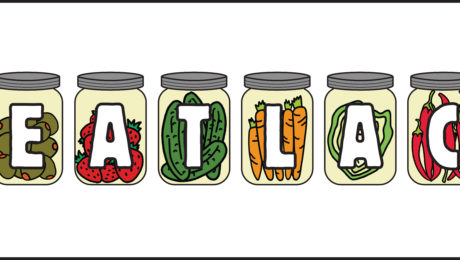EATLAC Studies, Educates on Fermentation
A new project is aiming to provide accurate information and resources to the public around the microbial mysteries of fermented foods. EATLAC is a University of California, Davis, project putting scientific knowledge and research behind fermentation.
“A good understanding of food and beverage fermentation is particularly important for people making fermented foods at home so that the foods are made properly and minimize the risk of foodborne illness,” says Maria Marco, PhD, microbiologist and professor in the department of food science and technology at the university (and member of TFA’s Advisory Board). “Access to accurate information about fermented foods is quite important for understanding their roles in healthy diets and what properties about them are different from the starting ingredients.”
EATLAC officially launched in 2019, with the help of funding from California Department of Food & Agriculture. Led by project directors Marco and Erin DiCaprio, PhD, a food safety expert and extension specialist at UC Davis, the EATLAC team is composed of grad and undergrad students helping to develop science-based guidance on fermented vegetables and fruits. Resources being developed in the project include recipes, consumer surveys, and webinars. This information will be available to the general public, from home fermenters to commercial producers.
The name EATLAC stands for Evaluating And Testing Lacto-ferments Across the Country, but LAC is also a play on words for lactic acid bacteria, the beneficial bacteria present in fermented foods.
Project objectives include:
- Developing educational materials on fermented foods.
- Conducting public education workshops on fermented foods.
- Measuring the bioactive properties of unpasteurized (fresh) fermented fruits and vegetables produced from specialty crops in California.
- Disseminating research findings to food processors.
“It is very important to spread reliable information and vetted recipes so that everyone can create something that is great but, more importantly, safe,” says Zoe Mitchell, undergraduate student at UC Davis. “Fermentation requires that food be left out on the counter (in the microbial temperature danger zone) for days on end. To create a safe fermentation environment that supports the growth of the microbes we want, recipe ingredients include things like acid and salt to inhibit pathogens. However, because just a little too much or too little of these ingredients can grow the wrong and potentially dangerous microorganisms, it is paramount to have reliable sources.”
An important role of the student team, Marco says, is to “perform laboratory research to study the microbiota and bioactive properties in fermented fruits and vegetables.” Students will also be responsible for developing informational materials on fermented fruits and vegetables and run the social media accounts.
Natália Ribeiro, doctoral student at UC Davis, has developed aspects of the project communication. She manages the EATLAC Instagram account, coordinates the posts on FaceBook, and is helping create fermentation fact sheets that will be available on the website. Riberio says she decided to join the project because she wanted to study further the health benefits of fermentation.
“There’s so much more to know about fermented foods and map out. We want to spread that information in a more validated way,” Riberio says. “People associate fermented foods with flavor, but in a society where we see so many people dealing with diseases, making fermented foods part of your habits could actually alleviate or improve your health in a very easy and even tasty way. Educating people about what is known (and not) is important.”
Since most of the team is not allowed to be in the laboratory due to the pandemic, they are collecting home ferments for analysis. EATLAC is calling on home fermenters around the country to send in their fresh fruit or vegetable ferments. Fresh ferments are samples taken right after fermentation, before refrigeration. The research group will then study the nutritional content and beneficial bacteria. Mitchell adds this allows the team “to create an extensive database on the microbial ecology of various fermentations.” Elements like ingredients, location, salt percentage and vessel type are all tracked to see how these factors affect fermentation.
The team is currently studying samples from home during the COVID-19 pandemic, but they’re anxious to return to the lab.
“There is a great and long history of food fermentation research at UC Davis,” Marco notes. The team will update existing informational resources and write new ones within EATLAC.
For more information about the educational resources, visit EATLAC webinar series.

